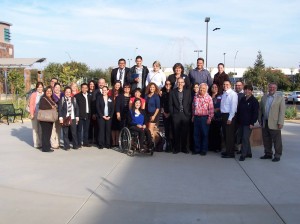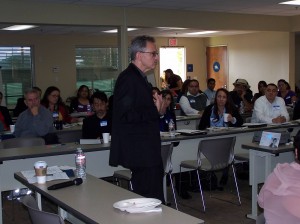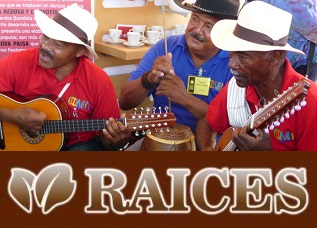Comprehensive immigration reform would help millions of people in the United States, and tens of thousands in California’s Central Valley, currently living in the shadows. In order for any reform passed in Congress to be successful, a plan of action is required to implement it, reach all those who are eligible to apply for legalization, and support them throughout the process.
Radio Bilingüe’s executive director, Hugo Morales, convened a group of leaders from the San Joaquín Valley to begin to map out the steps that will have to be taken the day after comprehensive immigration reform passes. The group met several times and, with the guidance and support of Dr. Manuel Pastor and Rachel Rosner, this plan of action was put together.
The full report is available here.
“History warns us that reform can be done well or not so well. During the implementation of the Immigration Reform and Control Act of 1986, many residents fell through the cracks – the majority never became naturalized citizens and weren’t able to benefit from the opportunity. The extent to which the region is able to effectively implement the pending reform legislation, will determine exactly how many people will be able benefit now. Therefore it is important to start having conversations about implementation upfront, especially in areas that have traditionally lacked resources and attention to serve their immigrant populations.”
“Fresno needs to be prepared for the future. There may be a tendency to hold off on preparing for reform, partly because of the stalemate in Congress, and partly because there is uncertainty on what the final legislation will look like. But reform will happen sometime and given the lack of capacity, investing now is key.”
“Inland California is the future (politically and socially) of the state and so investing now moves the needle on California civil society. And the changes are happening now—the time has come for Fresno to lead the shifting changes and shape its infrastructure to match the demand and composition of its communities.”
The Central Valley Immigrant Integration Collaborative Steering Committee:
- Jesus Martinez (CVIIC Chair), Coordinator, Immigrant Legal Resource Center’s Central Valley DACA Project.
- Hugo Morales, Executive Director, Radio Bilingüe, Inc.
- Jorge Aguilar, Associate Superintendent, Fresno Unified School District
- Brian Angus, Executive Director, Fresno Economic Opportunities Commission
- Juan Arambula, Former State of California Assembly member
- Amparo Cid, Sustainable Rural Communities Project Coordinator, CRLA Foundation
- Sally Kinoshita, Deputy Director, Immigrant Legal Resource Center
- Raul Moreno, Chief Executive Office, Education and Leadership Foundation
- Lazaro Salazar, Attorney, Salazar & Cook, LLP
- Chris Schneider, Executive Director, Central California Legal Services
- Diana Tellefson, Executive Director, UFW Foundation
- Grisanti Valencia, Fresno Immigrant Youth in Action
- Leoncio Vasquez-Santos, Executive Director, Centro Binacional para el Desarrollo Indígena Oaxaqueño















